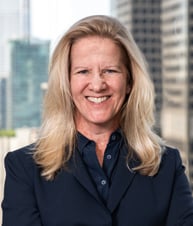Extracted from Law360
Nicki Carlsen is the co-leader of Alston & Bird LLP’s environmental and land development group. Her practice focuses on land use, environmental compliance and litigation. She has experience with the federal, state and local regulations affecting development projects, including land use planning and subdivision laws, the California Environmental Quality Act, the National Environmental Policy Act, the Clean Water Act and endangered species acts.
 Q: What is the most challenging case you have worked on and what made it challenging?
Q: What is the most challenging case you have worked on and what made it challenging?
Nicki: My most challenging case was an incredible four-year odyssey negotiating certain environmental conditions with a government agency on behalf of a client. This process was unnecessarily long and drawn out not only because the regulations lacked specificity, resulting in a broad range of interpretations and numerous expert reports, but also because the case was assigned to six different managers, most of whom required our client to start from the beginning every time a new manager was assigned.
Some of the managers handled the case professionally, but one manager misled supervisors to require additional expert reports, and another manager made outrageous demands, which were retracted once brought to the attention of supervisors. The client could have sued the government, resulting in further delay and expense, but few clients are interested in litigation, and candidly, the government knows that litigation is unlikely. We eventually resolved the environmental conditions through perseverance and through the exceptional work of a handful of government officials.
Q: What aspects of your practice area are in need of reform and why?
Nicki: The most critical area in need of reform is the CEQA. Many of the environmental topics addressed under the CEQA, e.g., air and water quality, transportation, biological resources [and] geotechnical, are currently subject to very stringent regulatory oversight. Thus, the CEQA has become somewhat duplicative and unnecessary for purposes of providing additional environmental benefit.
Also, the CEQA is used as a vehicle to delay development projects for years, although the motivation in bringing CEQA lawsuits frequently has little to do with the environment, and the CEQA litigation, even if successful, rarely results in any substantial benefit to the environment. Some might say that having fewer development projects is an environmental benefit in and of itself, but that is not and never has been, the purpose of CEQA.
Q: What is an important issue or case relevant to your practice area and why?
Nicki: One of the most important issues to consider will be the intersection of technology and the use of land. Technology will continue to revolutionize our way of life through transportation advances such as automated vehicles, wireless communications, sustainability and creative energy concepts. Cities and counties should be forward-thinking and ensure that governing land use regulations promote, and not deter, the effective integration of technological improvements into our planning process.
Q: What is a mistake you made early in your career and what did you learn from it?
Nicki: Early in my career as a young associate, I allowed an opponent to get under my skin. In this particular instance, a physical threat was made against one of the professionals involved on our side of the matter. Given the threat involved, the dispute became personal, and although the matter was ultimately resolved in my client’s favor, I realized that the most effective way to represent our clients is to maintain a professional demeanor at all times and to deflect personal accusations.
